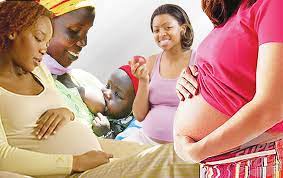The Executive Director of the Policy Innovation Centre, Dr Osasuyi Dirisu has said that 80 per cent of poor rural women have difficulty accessing financial services.
In a pre-conference press briefing, Monday in Abuja, Dr. Osasuyi also said the situation has further made it difficult for them to drive trade and inclusiveness.
The Gender and Inclusion Summit, with the theme “Building Bridges: Advancing Gender and Inclusion through the Intersection of Trade and Health” woll hold on November 28 and 29, in Abuja, Nigeria.
Analysts say the event would be a catalyst for positive change, uniting voices, inspiring commitments, and mobilizing stakeholders to advance gender equality.
She said, “About 80 per cent of the 133 million people who are multi-dimensionally poor live in rural settings, who are talking about access to financial services to drive trade and inclusion. Who is talking about the gaps in infrastructure to drive productivity?
The PIC Executive Director noted that it is becoming increasingly difficult for women and vulnerable groups to access healthcare making Nigeria one of the countries with the worst indices for maternal mortality, new-born to child birth.
“There needs to be real conversation around gender inclusion centred around trade for that is the powerhouse that drives productivity and drives conversation around GDP that we are able to address issues around inflationary pressures and ensure that we have a productive society.
“The summit is special because we are not just talking about health, we are talking about trade. We are talking about an intersection where vulnerability is likely to occur,” Dr. Osasuyi said.
Speaking about the upcoming event, the Chief Executive Officer Designate of the Nigerian Economic Summit Group, Dr Tayo Aduloju stated that ‘’To facilitate the advancement of a gender-inclusive society, it is necessary to consider how trade, investment, and health policies/interventions affect women, men, and vulnerable populations differently. Despite their significant contributions to informal trade, women continue to have limited access to resources and markets. There are also significant gaps in access to health services and Nigeria’s maternal mortality remains among the highest in the world.”
He further stated that “Considering these realities, the high-level forum on the SDGs has partnered with the Policy Innovation Centre (PIC) to ensure seamless delivery of the Gender and Inclusion Summit 2023”.
PIC, an initiative of the Nigeria Economic Summit Group (NESG), is the first national institutionalized behavioural initiative in Africa supporting governments and stakeholders to make behaviourally informed decisions and generate contextually relevant evidence for high-impact interventions in critical thematic areas.



